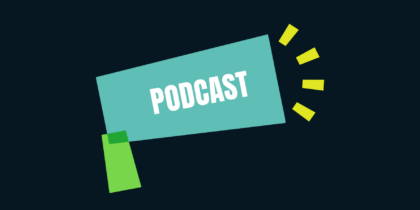We recently held our first event for the new Mentally Healthier System Leaders Network, bringing together people who work in integrated care systems to form a learning community for better and more equitable mental health nationwide.
We discussed how to improve children and young people’s mental health, with contributions from Zaynab Sohawon from Emotional Dysregulation in Autism, Louise Lyons-Appiah from BreatheUnion, Nana Owusu from Hammersmith, Fulham, Ealing and Hounslow Mind, and Matthew Dodd from the National Children’s Bureau (NCB).
Here are just a few of the things we learned from what they told us, and the thoughts shared by participants at the event from systems across the country.
1. For youth voices to be really heard within systems, there needs to be a genuine power shift. This means more than box-ticking or shadow arrangements, such as a ‘youth forum’ separate to where the real decisions are made. A youth chair or commissioner might have a more powerful voice and real influence in a system’s governance and decision-making. We also heard about the importance of involving children and families in strategy development and oversight, with attention to inequalities in who is heard in such processes.
Connected to this, creating paid roles for young people within systems, including peer workers and youth consultants, has multiple benefits, both for the young people themselves and those they support.
Reaching out to local user groups, charities, schools, colleges and community organisations can expand a system’s knowledge and understanding further still. Research by NCB has found that schools and children’s social services are seldom included within discussions about children’s health services, despite the depth of knowledge they hold.
2. It’s vital for systems and those who commission services to avoid putting young people into boxes. Too often, young people (or any age group, for that matter) are placed into single-issue, diagnostic boxes. These give no space for intersectionality or complexity. Many young people’s mental health and wellbeing needs are fluid and yet to crystallise into a diagnosis. And young people’s needs vary on a number of dimensions, including gender and gender identity, ethnicity and faith, neurodiversity, and sexuality. Needs-led commissioning might provide a way of building support around young people rather than trying to wedge young people into ill-fitting categories.
3. Mental health support needs to change to offer all groups of young people the right help at the right time. A ‘test and learn’ approach can help to spark innovation in the ways services are organised and delivered. Circle in Ealing is one example of this approach, providing a different response to a poorly met need (in this case, young people in a mental health crisis having nowhere but A&E to go to). In coproducing every aspect of the service with young people and families, respecting a voluntary sector provider’s ability to deliver this important role, and being prepared to adapt the model as it develops, Circle shows what can be achieved with true partnership working in a local area.
4. It’s vital that young people aren’t left waiting for mental health support for long periods without any help. Children and young people’s mental health services across the country are facing long and growing waiting lists. Where a wait is unavoidable, support and information can make a big difference. Skilling up youth workers (who may be more trusted by young people than mental health professionals) to deliver support, or providing coaching as an additional offer, can simultaneously help to broaden the mental health workforce.
5. Systems can learn from one another. Many are already trying new approaches to meeting young people’s mental health needs and closing the gaps in provision. That’s where our new network can provide the connections and learning opportunities for system leaders to come together, share ideas, and find workable solutions.








